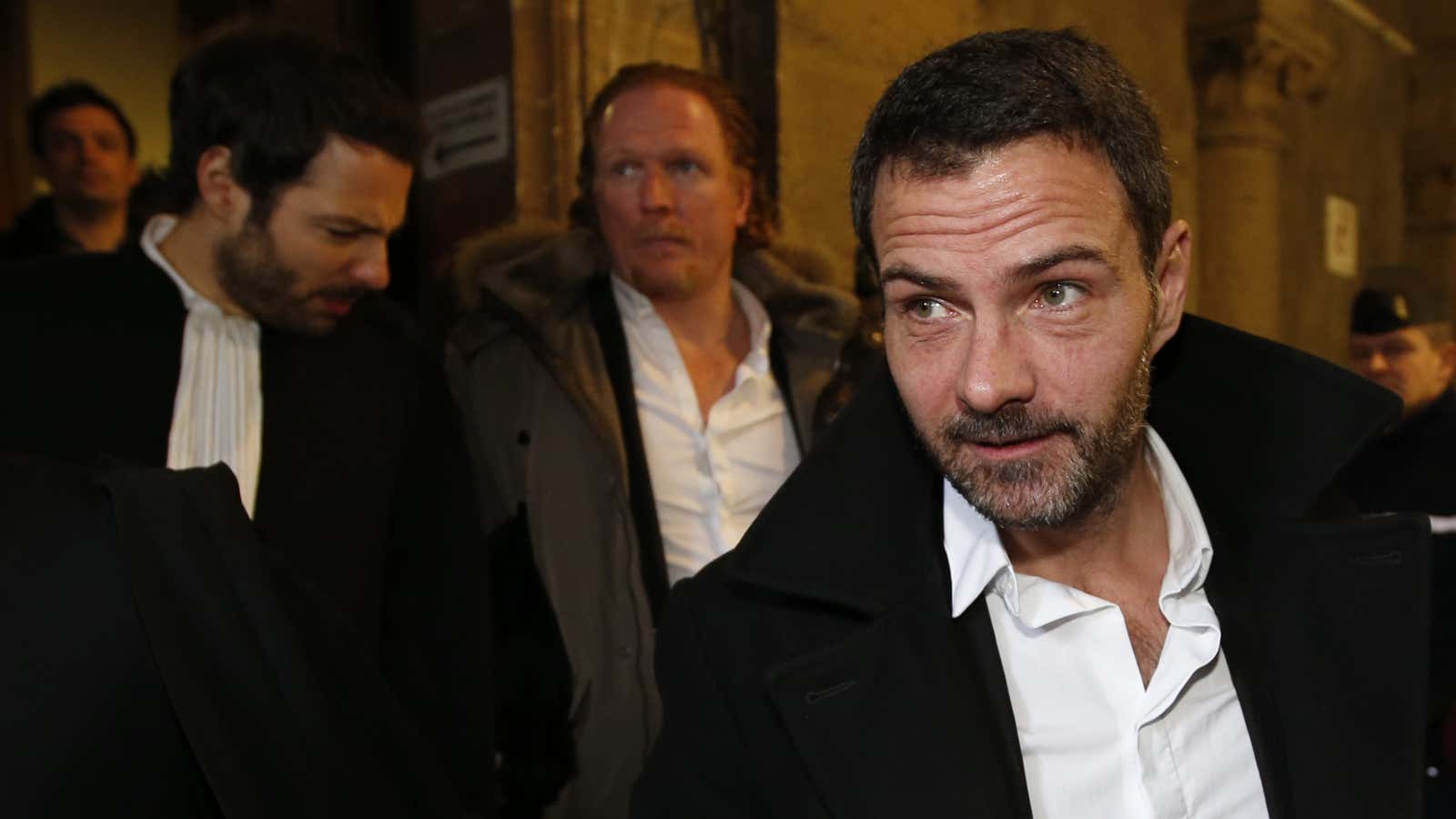If you want to understand the real power of labor in France, look beyond the railroad strikes paralyzing the country this week and consider the judgment rendered against Société Générale yesterday (June 7) in a case brought by a rogue trader it fired.
Jerome Kerviel’s $7 billion in losses in 2008 nearly brought down the investment bank. But a Paris employment tribunal said he was dismissed “without real or serious cause” and ordered the bank to pay him $517,000 in damages for unfair dismissal and back pay. That includes Kerviel’s unused vacation pay and a bonus he was awarded in 2007.
France’s strong labor laws make firing employees expensive and burdensome for employers, and have been blamed for the nation’s high unemployment and sluggish economy. Without the the flexibility to terminate workers in a downturn, companies are reluctant to commit to hiring permanent employees, and instead rely on temporary workers.
President Francois Hollande’s efforts at reforming those laws have set off waves of union unrest across the country, and the government has already retreated from one of the most business-friendly proposals, which would cap the amount of severance that could be awarded to a fired employee. Now, the caps will be used as non-binding guidelines for the labor courts.
Kerviel was a low-level trader when he racked up $57 billion in unauthorized trades. Convicted of forgery and other crimes in 2010, he spent three months in prison after a three-year sentence was cut short. His crime wasn’t losing money, but covering up the losses with fraudulent trades.
Kerviel took his case to an employment court and argued that he wasn’t solely responsible, because the bank created the conditions that allowed his activities, and turned a blind eye as long as his trades made money. The court agreed yesterday, arguing the bank “could not pretend it hadn’t long been aware of the unauthorized trades conducted by Mr. Kerviel,” according to the Wall Street Journal.
Société Générale was apoplectic over the verdict. “It’s a scandalous decision,” Arnaud Chaulet, its lawyer told Bloomberg. The bank said it will appeal, and Kerviel may still owe the bank damages, which will be determined in another trial.
